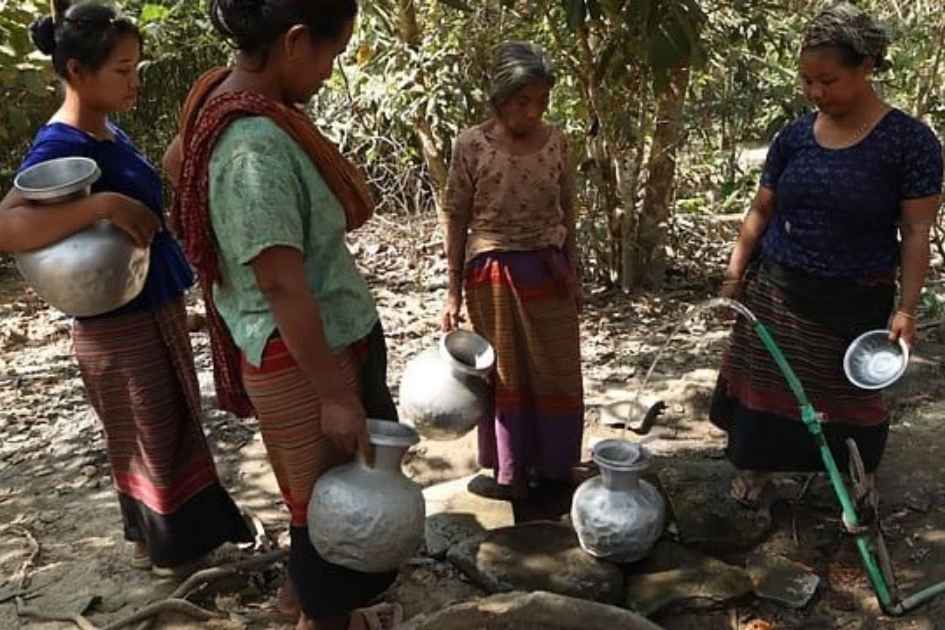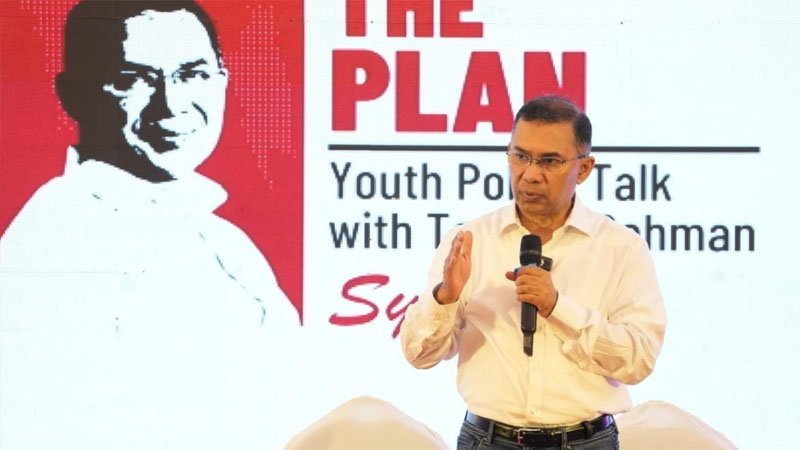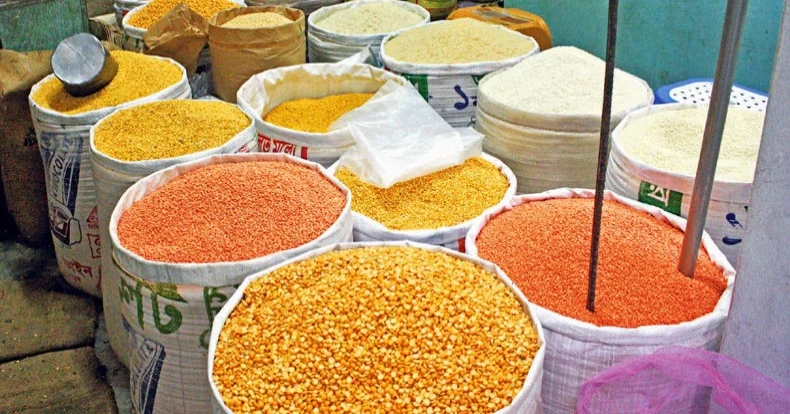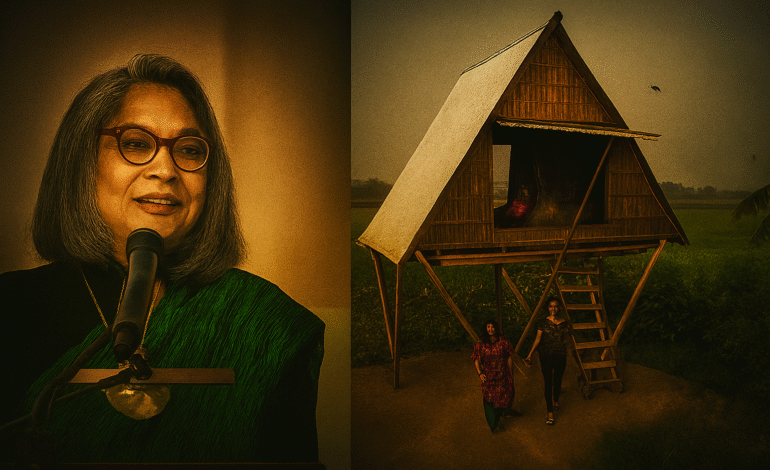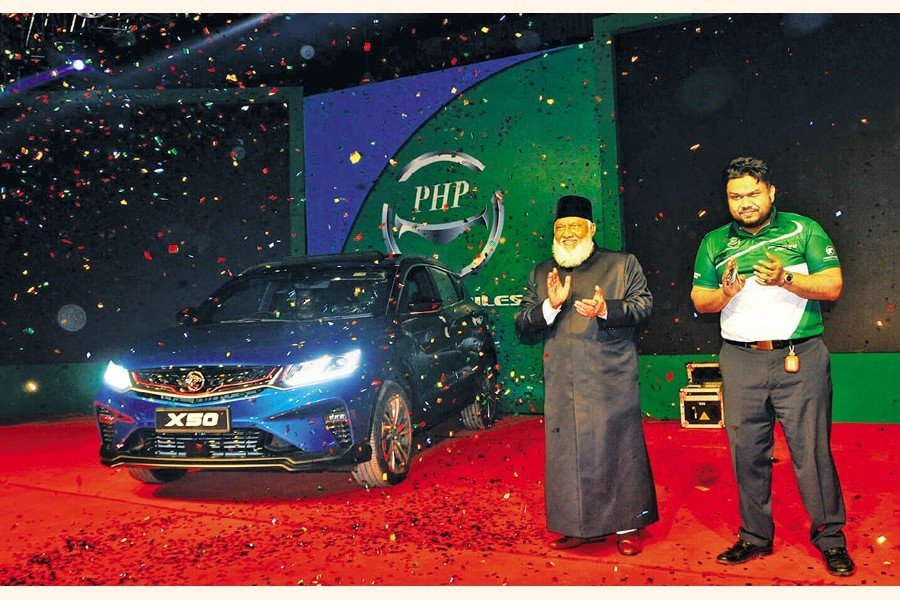Marina Tabassum’s Khudi Bari receives 2025 Aga Khan Award
Marina Tabassum’s Khudi Bari receives 2025 Aga Khan Award for Architecture, one of the most prestigious accolades in the world. Bangladesh has once again earned global recognition in the field of architecture.
The award ceremony, held on 15 September 2025 at the Toktogul Satylganov Kyrgyz National Philharmonic in Bishkek, Kyrgyz Republic, marked the 16th cycle of the Aga Khan Award. Representing Bangladesh, Mohammad Monirul Islam, the country’s ambassador to Uzbekistan and Kyrgyz Republic, attended the prestigious event.
This recognition is not the first for Marina Tabassum Architects. In 2016, the firm won the Aga Khan Award for the Bait-ur-Rouf Mosque in Dhaka, a project celebrated globally for its spiritual, minimalist design and innovative use of natural light.
The Significance of the Aga Khan Award
The Aga Khan Award for Architecture was established in 1977 by Prince Karim Aga Khan IV. It is unique among architectural prizes for its focus on projects in which Muslim communities have a significant presence. Beyond aesthetics, the award emphasizes projects that improve quality of life, strengthen social bonds, and respond to cultural and spiritual needs.
Awarded every three years, the prize carries a total purse of $1 million, shared among winners. It recognizes projects that go beyond physical structures, serving as catalysts for Climate resilience, Cultural identity, Community empowerment, Pluralism and social transformation
Prince Rahim Aga Khan, Chair of the Award’s Steering Committee, highlighted the award’s vision:
“Architecture today must engage with the climate crisis, enhance education, and nourish our humanity. Through it, we plant seeds of optimism – quiet acts of resilience that grow into spaces of belonging, where the future may thrive in dignity and hope.
Khudi Bari: Small in Size, Big in Impact
The winning project, Khudi Bari (meaning “Little House” in Bengali), is a housing solution designed specifically for communities displaced by climate change and river erosion in Bangladesh. With shifting riverbeds, floods, and sandbars displacing thousands of people each year, Khudi Bari offers a practical, affordable, and sustainable solution.
Here’s what makes Khudi Bari stand out:
- Use of Local Materials and Techniques
The houses are built primarily with bamboo, a renewable and widely available resource in Bangladesh. By incorporating traditional construction methods, the project empowers local communities to build and maintain their own homes without relying on expensive external contractors.
- Climate-Responsive Design
Khudi Bari homes are designed to withstand floods and seasonal shifts. Their modular structure means they can be dismantled and rebuilt easily, ensuring families can relocate quickly when rising waters threaten their homes.
- Affordability and Accessibility
Each Khudi Bari unit costs only around US $450, making it far more affordable than conventional housing solutions. This affordability ensures that even the poorest families can access dignified shelter.
- Scalable Global Application
Beyond floodplains, the design has been successfully adapted in Rohingya refugee camps, where women-led facilities based on Khudi Bari modules provide safety, privacy, and functionality. Its scalability highlights its potential global relevance in addressing displacement caused by climate change.
A Continuation of Bangladeshi Architectural Ingenuity
This is not the first time Marina Tabassum has drawn global attention to Bangladesh’s architectural potential. Her previous Aga Khan Award-winning project, the Bait-ur-Rouf Mosque, broke away from traditional mosque designs, offering a serene, light-filled space for spiritual reflection.
With Khudi Bari, Tabassum takes her philosophy further, proving that architecture is not just about beauty but about survival, dignity, and resilience. Her projects embody the belief that architecture must engage directly with people’s lives and respond to urgent issues like climate change.
Global Recognition: Other Winners of the 2025 Aga Khan Award
While Khudi Bari put Bangladesh in the spotlight, six other projects worldwide shared the honour:
West Wusutu Village Community Centre (China): Built with reclaimed bricks, this centre fosters community gatherings and artist collaborations.
Revitalisation of Historic Esna (Egypt): Blending cultural tourism with urban regeneration, the project revitalizes a historic Egyptian city.
Majara Residence and Community Redevelopment (Iran): Sustainable tourist accommodations that revive Hormuz Island’s unique landscape.
Jahad Metro Plaza (Iran): Transformation of a neglected Tehran station into a lively pedestrian-friendly space.
Vision Pakistan (Pakistan): A vocational training hub in Islamabad empowering disadvantaged youth.
Wonder Cabinet (Palestine): A nonprofit creative hub in Bethlehem, supporting craft, design, and education.
These projects collectively represent the award’s values: innovation, cultural dialogue, and resilience in the face of global challenges.
Why Khudi Bari Matters for Bangladesh and Beyond
Bangladesh is at the forefront of climate change, with millions at risk of displacement due to rising sea levels and river erosion. In this context, Khudi Bari is more than just an architectural project; it is a lifeline for vulnerable communities.
Its emphasis on self-reliance, affordability, and environmental responsibility makes it a model for other climate-vulnerable nations. As climate migration increases globally, projects like Khudi Bari could serve as templates for emergency housing solutions worldwide.
Challenges Ahead and Future Vision
While the recognition is significant, scaling up Khudi Bari remains a challenge. Wider adoption will require government support, NGO collaboration, and policy integration. Additionally, architects and planners must ensure that such housing solutions align with safety regulations and urban planning strategies.
Yet, the future looks promising. With international recognition from the Aga Khan Award 2025, Khudi Bari now stands as a beacon of Bangladeshi ingenuity and resilience. It demonstrates how architecture can directly address the existential threat of climate change while maintaining affordability and cultural relevance.
The Aga Khan Award for Architecture 2025 has once again highlighted Bangladesh as a hub of innovative, climate-responsive design. Through Khudi Bari, Marina Tabassum Architects has offered the world not just a structure, but a vision of resilient, affordable, and dignified housing.
As Bangladesh battles the challenges of displacement, Marina Khan’s Khudi Bari shines as a reminder that even the smallest houses can spark the largest global conversations about sustainability, climate change, and human dignity.
With projects like this, Bangladesh is not just adapting to climate change — it is leading the world in architectural innovation and resilience.

